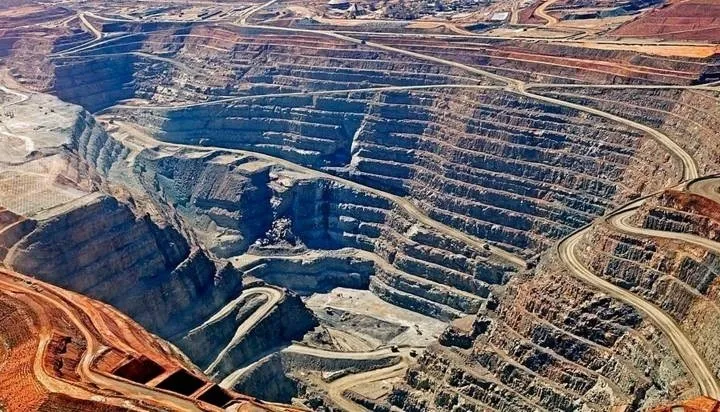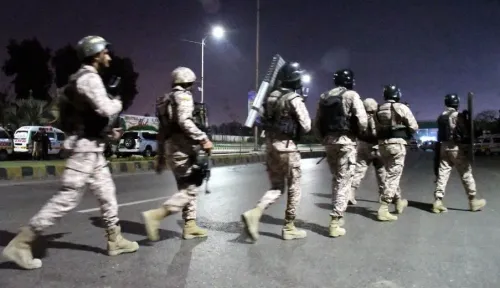Is the US's Granting of Pakistan Access to Balochistan's Resources a Strategic Blunder?

Synopsis
Key Takeaways
- Balochistan's mineral wealth is a significant resource.
- Pakistan's nuclear threats pose a substantial risk to peace.
- Global powers must act to prevent terrorism.
- Mir Yar Baloch warns of catastrophic consequences.
- Engagement with Pakistan could lead to global self-destruction.
Quetta, Aug 13 (NationPress) Prominent Baloch human rights advocate Mir Yar Baloch expressed on Wednesday that the decision by US President Donald Trump to grant Pakistan access to the extensive and largely untapped mineral resources of Balochistan is a significant miscalculation. He emphasized that Balochistan will not permit the exploitation of its rare earth minerals for purposes that could undermine global peace and stability.
In a matter of just 48 hours following this announcement, the human rights activist noted that Pakistan's Army Chief Asim Maulana Munir openly threatened to 'bring down half the world with nuclear weapons' and pledged to destroy major dams within India's sovereign borders.
Subsequently, Mir highlighted that Pakistani Defence Minister Khawaja Asif, Pakistan Peoples Party Chairman Bilawal Bhutto, and 'puppet' Prime Minister Shehbaz Sharif intensified this 'reckless and dangerous rhetoric.'
'The global community, particularly the United States, has previously erred by overlooking Pakistan’s access to nuclear weapons, which have now emerged as a severe threat and liability to peace throughout the region,' Mir conveyed through a post on X.
'Pakistan’s nuclear capabilities are now being irresponsibly flaunted; its Prime Minister continuously advocates for Iran to obtain nuclear weapons, while Iran openly threatens to eliminate America’s ally, Israel. Meanwhile, Pakistan’s Army Chief has declared intentions of dragging 'half the world down' into nuclear devastation,' he added.
Expressing concerns, Mir stated that if the US under President Trump permits Pakistan to access Balochistan’s vast mineral resources for its own interests, it would be 'like giving a loaded gun or a razor to a monkey', a reckless act that could lead to destruction not only for Pakistan but for the entire globe, a threat already indicated by Army Chief Asim Munir.
He stressed that if Pakistani extremists gain illegal control over Balochistan’s oil, gas, uranium, gold, silver, copper, and other rare earth resources valued in trillions of dollars, the 'extent of their terrorism will escalate to unprecedented, catastrophic levels, endangering not just South Asia but the stability of the entire planet.'
Mir emphasized that the world is now faced with an unavoidable truth: engaging with Pakistan, supplying arms to its terrorist military, or collaborating with it in any capacity is not merely 'recklessness'; it is an act of 'global self-destruction, a gamble with global security, jeopardizing the safety and security' of all humanity.
'As a responsible entity, the Republic of Balochistan remains committed to regional peace, stability, and prosperity. Its citizens will never permit their rare earth resources to be looted by Pakistan’s radical army to fund nuclear blackmail, orchestrate another 9/11-style attack, or continue harboring international terrorist networks like ISIS and Al-Qaeda sleeper cells entrenched in Pakistan's Punjab province,' he remarked.
Mir urged global powers to take decisive action, uniting to dismantle Pakistan’s double game and to shut down the terror operations run by its notorious Inter-Services Intelligence (ISI) and its network of paid extremist proxies. He warned that the price of inaction would be reflected in global insecurity and the loss of countless innocent lives.










